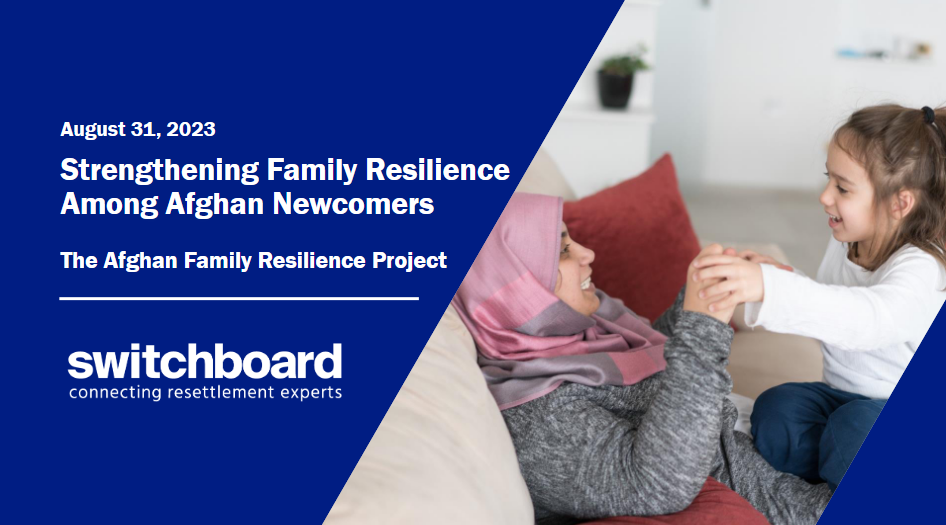This webinar is presented by Switchboard, a one-stop shop for refugee service providers in the United States. Learn more about Switchboard at www.SwitchboardTA.org. Hosted on August 31, 2023 the training was delivered by Dr. Mary Bunn, PhD, LCSW; Caroline Dilts, MSW, LICSW; Dr. Euijin Jung, PhD, MSW; Farhad Sharifi, MSW; and, Asma Kharooti, MS.
Over 95,000 Afghan newcomers are currently living in the United States, with 40% being children and adolescents. Due to their exposure to trauma, these newcomers face an increased risk of poor family functioning and mental health issues. Resettlement stressors and the challenges of adjusting to life in the U.S. add to their vulnerability. Because these problems have adverse consequences on the entire family system, the Boston College School of Social Work’s Research Program for Children and Adversity and the University of Illinois Chicago Department of Psychiatry launched a research project, in partnership with the U.S Committee for Refugees and Immigrants (USCRI) and Switchboard, to inform delivery of mental health and family support services to resettled Afghans.
This webinar will discuss lessons learned from the Afghan Family Strengthening Initiative. Specifically, the speakers will share findings related to key problems, needs, and strengths of newly arriving Afghan families. They will describe the project approach and how they used rapid qualitative methods to engage with youth and caregivers in a needs assessment process. They will also discuss the role community members played in the project through community advisory boards. Finally, the speakers will address how findings and insights from their research can inform future work and services with resettled Afghan communities.
After participating in this 75-minute session, you will be able to:
- Recognize the need for strengthening family resilience among Afghan newcomers;
- Describe how the research was conducted and what methods of data collection were employed;
- Explain how research can be utilized to identify the needs of Afghan children and adolescents; and
- Describe the implications of the research and its impact on Afghan newcomers and service providers.







